There’s more to your dog’s sniffer than meets the eye. While you might think your canine companion simply enjoys your scent, they’re actually picking up on a whole host of fascinating details about your life. Dogs possess an extraordinary sense of smell, capable of detecting subtleties far beyond human capacity. From your emotional state to your dietary choices, here are 14 surprising things your dog can smell on you that you probably never realized.
1. Your Mood
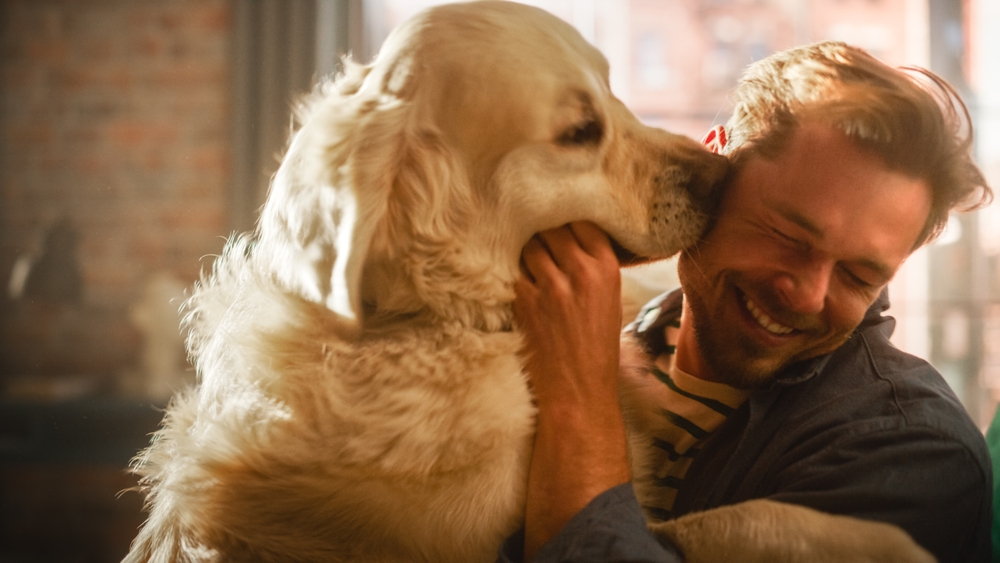
Ever wonder why your dog snuggles up to you when you’re feeling down? Dogs can actually detect changes in your emotional state through chemical signals released by your body. A 2018 study published in the journal Animal Cognition found that dogs can differentiate between human emotional expressions, using their keen sense of smell to pick up on stress hormones like cortisol. So, when you’re happy, anxious, or sad, your pup knows, and they’re ready to respond with the support only a loyal companion can provide.
These amazing abilities go beyond just sniffing out fear or anxiety. Dogs are sensitive to more subtle emotional shifts as well, like when you’re feeling excited or calm. They can even detect happiness through a combination of facial cues and scent, which means they’re more in tune with your feelings than many people realize. It’s no wonder they often seem to know exactly when you need a little extra love or attention.
2. Your Diet

Your dog knows what you had for dinner last night, thanks to the olfactory signals lingering on your breath and skin. While it might sound like a party trick, a dog’s ability to detect dietary choices can be quite sophisticated. They’ve evolved to recognize specific scents associated with various foods, a skill that once helped them in scavenging for meals. Whether it’s garlic, onions, or something sweet, your dog picks up on these cues almost immediately.
This sensitivity to food smells is why dogs often seem to appear out of nowhere when you’re cooking or eating. They’re not just hoping for a bite — they’re genuinely intrigued by the scents wafting through the air. Additionally, a change in your diet might also affect your body chemistry, something your dog will likely notice. So, if you’ve suddenly switched to a plant-based diet, don’t be surprised if your furry friend gives you a curious sniff.
3. Your Health
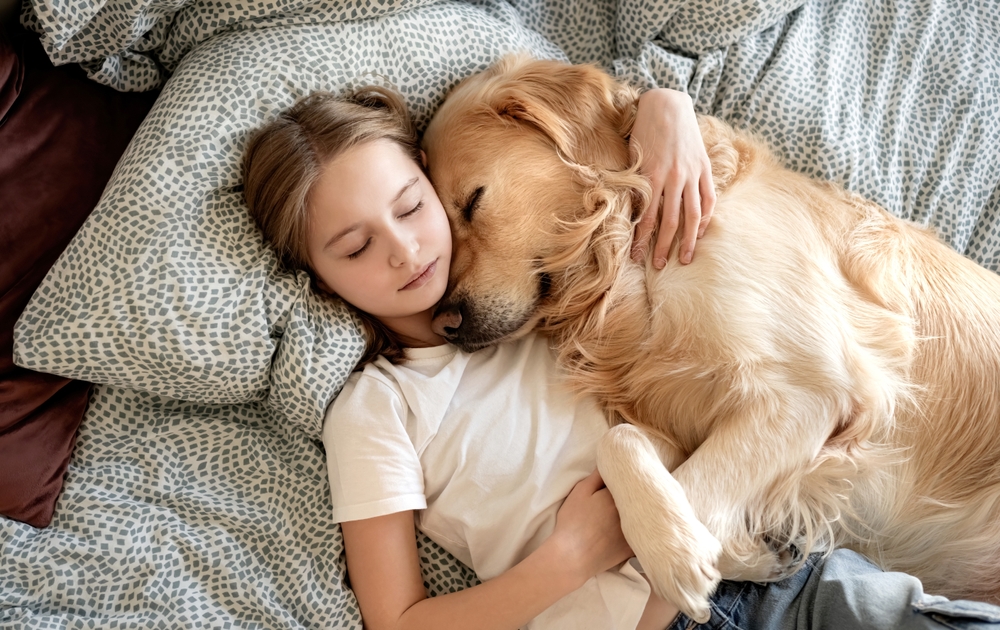
Dogs have an uncanny ability to detect changes in your health before you even realize something is amiss. Research from the journal BMC Cancer shows that dogs can be trained to sniff out various diseases, like cancer, through volatile organic compounds released by tumors. This skill has paved the way for the development of medical detection dogs, who assist in diagnosing conditions such as diabetes and epilepsy. Even without specific training, your dog might notice subtle changes in your scent if you’re coming down with a cold or another illness.
Their heightened sense of smell allows them to detect the minute chemical changes in your body associated with illness. This is why your dog might seem unusually attentive or concerned when you’re feeling under the weather. They can sense the difference, even if you’re just feeling a little off. Their ability to monitor your health is another reason they make such incredible companions, always ready to alert you to potential issues.
4. Pregnancy
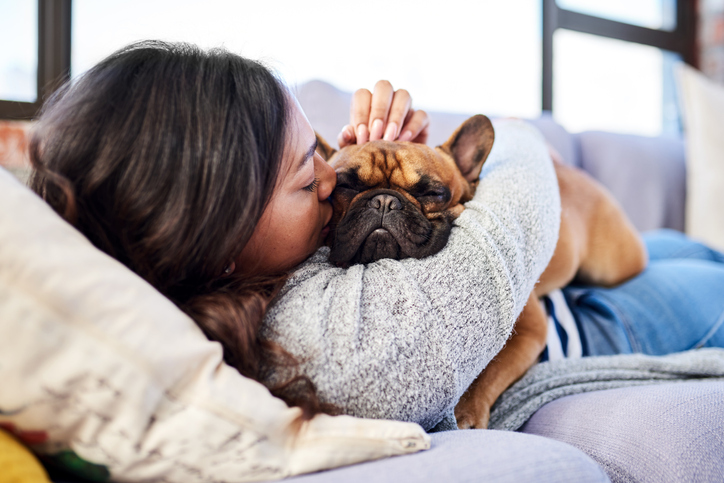
If you’re expecting, your dog might be among the first to know. Pregnancy causes a variety of hormonal changes in your body, which subtly alter your scent. Dogs can detect these nuances with remarkable accuracy, sometimes even before you take that at-home test. This could explain why some dogs become more protective or clingy when their owners are pregnant.
Your dog’s reaction to your pregnancy can vary depending on their personality. Some dogs may become more attentive and follow you around more closely, while others might act out due to the change in routine and attention. It’s their way of adjusting to the new, unfamiliar scent that signals upcoming changes. Understanding this can help you better prepare your furry friend for the arrival of a new family member.
5. Your Fear
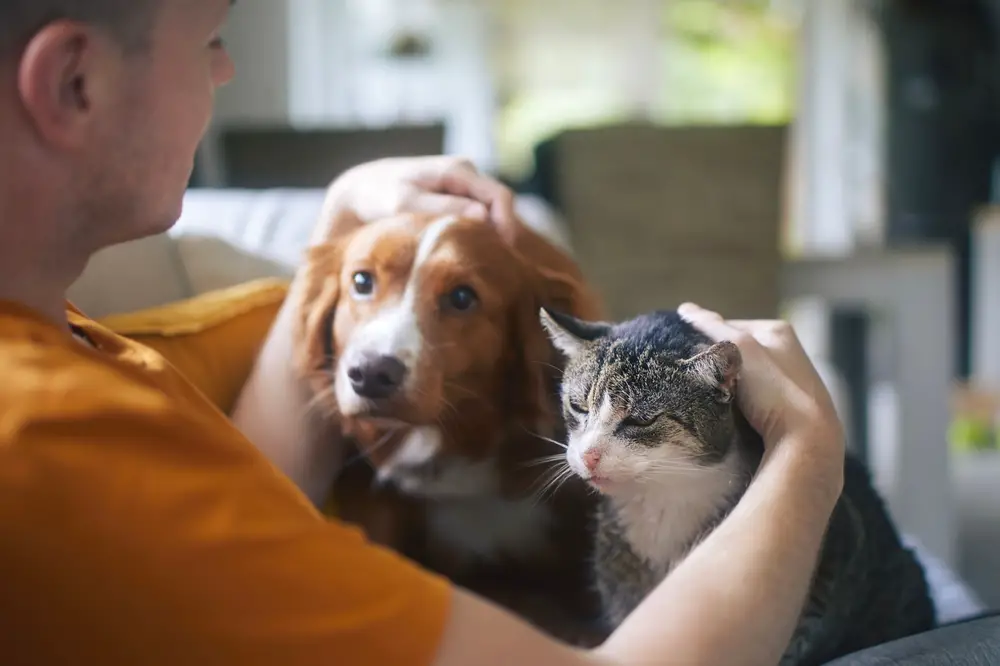
You might not realize it, but dogs can smell fear. This isn’t some supernatural ability — it’s a matter of biology. When you’re scared, your body releases adrenaline, a hormone that dogs can detect through the scent of your sweat. A study published in the journal Scientific Reports found that dogs can identify human emotions like fear through changes in body odor.
This heightened awareness of your emotional state can affect your dog’s behavior as well. For instance, if they sense you’re scared, they might become anxious or protective. Conversely, if they understand there’s no real threat, they may try to comfort you with their presence. This sensory insight helps them navigate social interactions, not just with you but with other animals and people as well.
6. Your Medications
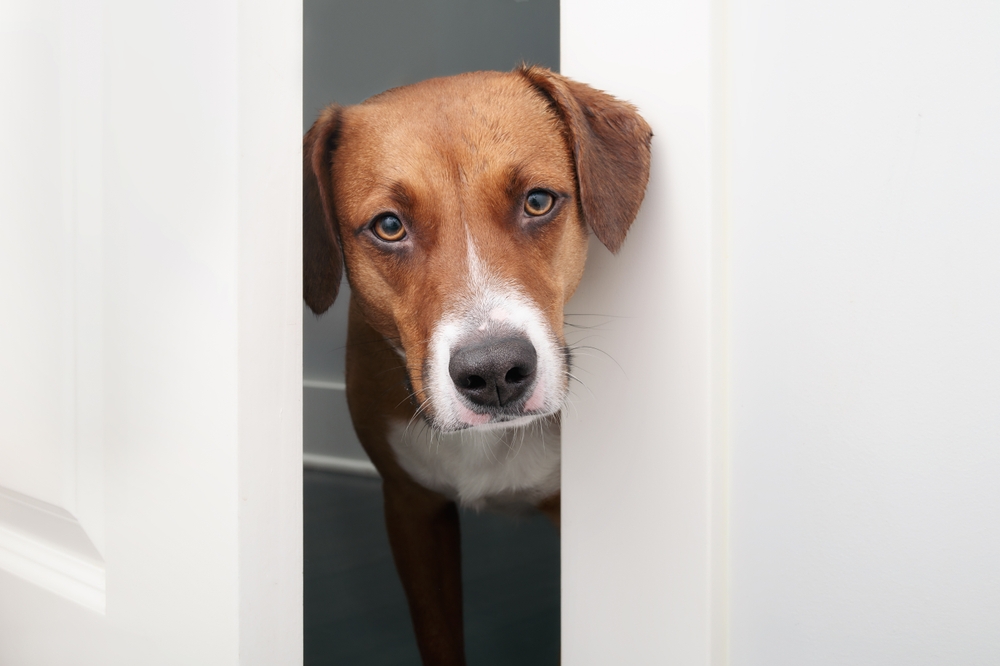
If you’ve ever caught your dog sniffing around your medicine cabinet, it might be because they can smell the medications you’re taking. The chemicals in many medications are excreted through the skin and sweat, giving off a scent that your dog can detect. This ability is awe-inspiring, as it demonstrates just how attuned dogs are to the chemical landscape of their environment.
While they might not understand what medications are, dogs can recognize the scent as something new or different. This can lead to curious behaviors, such as increased sniffing or sticking closer to you. It’s essential to ensure that any medications are safely stored out of your pet’s reach since their curiosity could lead them to trouble. Recognizing this aspect of your dog’s sensory world can help you manage their environment more effectively.
7. Your Relationships

Believe it or not, your dog might be able to sense changes in your relationships. According to a study in the journal Learning & Behavior, dogs can interpret a range of human social cues and even mimic the interactions and emotions they observe. They can detect the scent of other people on you, which might give them clues about who you’ve been spending time with. This could explain why your dog might suddenly become interested in a new friend or partner you bring home.
Your dog’s behavior can be surprisingly telling about your social life. If they seem especially excited or wary around a particular person, it may be worth paying attention. They’re picking up on subtle cues — both from the person and from your interactions with them. While it’s not foolproof, it can be an interesting insight into how your dog perceives your social circle.
8. Your Exercise Habits

Your dog knows when you’ve hit the gym, even if you haven’t told anyone else. Exercise changes your body chemistry, particularly through sweat and the release of endorphins. Dogs are well-attuned to these changes, and they can sense when you’ve been active. This can lead to them being more excited when you return home, as your elevated mood and scent signal an opportunity for play.
Interestingly, your dog’s sensitivity to your exercise habits can inspire them to be more active as well. It’s a form of positive reinforcement, where your increased activity level encourages similar behavior in your pet. So, next time you finish a workout, consider taking them for a walk or engaging in a game of fetch. Their noses know you’ve been moving, and they’re eager to join in on the fun.
9. Your Age
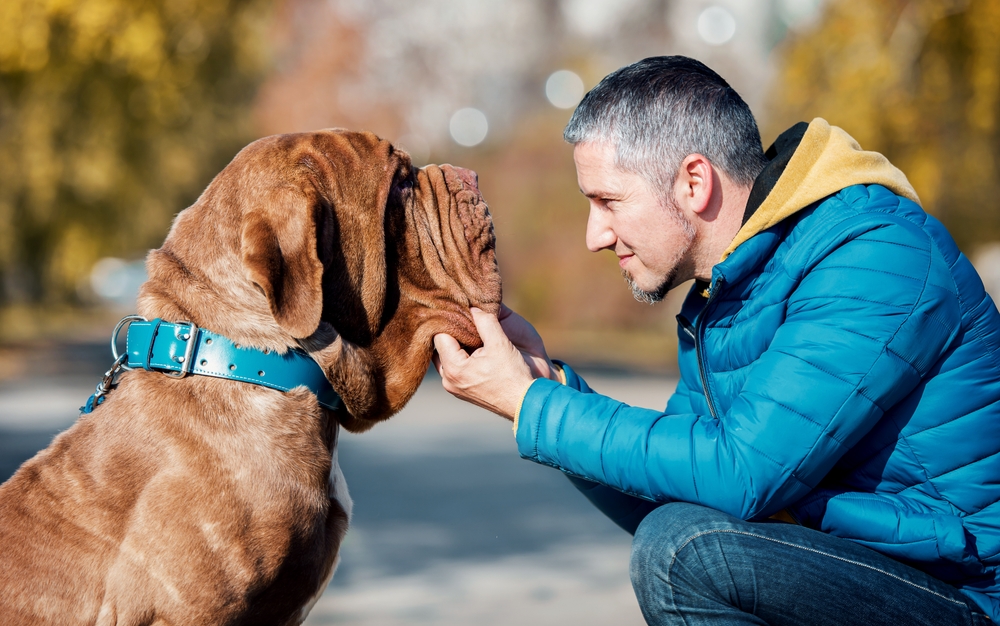
While you might try to conceal your age with creams and lotions, your dog knows the truth. Dogs can smell the difference between young and older humans through the unique scent signatures associated with age. As people age, their hormone levels and skin chemistry change, producing distinct odors that a dog’s nose can detect. This ability allows dogs to respond differently to children, adults, and the elderly.
This skill is particularly useful for service dogs, who can tailor their behavior to the needs of individuals based on age. For instance, they might be gentler and more patient with elderly people or hyper-aware of protecting young children. Even outside of service work, your dog might show different levels of energy and enthusiasm based on the perceived age of the people around them. It’s a fascinating glimpse into how dogs use scent to navigate their social world.
10. Your Stress Levels
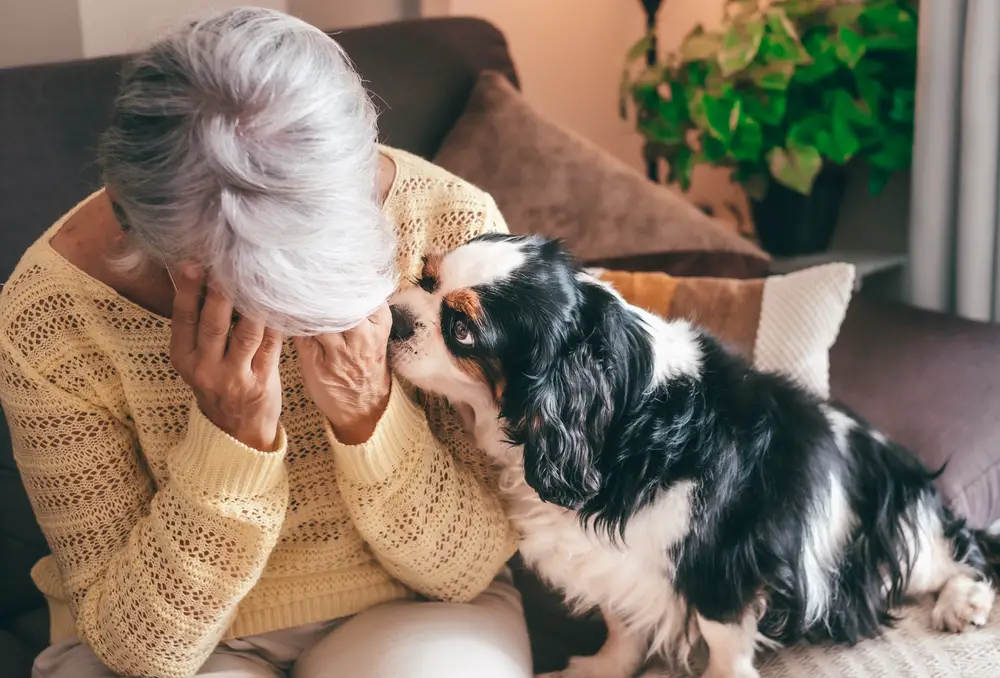
Your dog can tell when you’re stressed, and it’s not just from the way you’re acting. Stress leads to chemical changes in your body, particularly through the release of cortisol, which dogs can sniff out. This ability to sense stress isn’t just about detecting danger; it’s also about understanding your needs. When you’re stressed, your dog might respond by offering comfort or simply staying close by.
Interestingly, the presence of a dog can also help reduce stress levels in people. Studies have shown that petting a dog can lead to a decrease in cortisol levels, creating a bi-directional relationship where both you and your pet benefit. Recognizing how your stress levels affect your dog’s behavior can help you manage your interactions more effectively. Understanding this dynamic can enhance the bond you share with your furry friend.
11. Your Gender
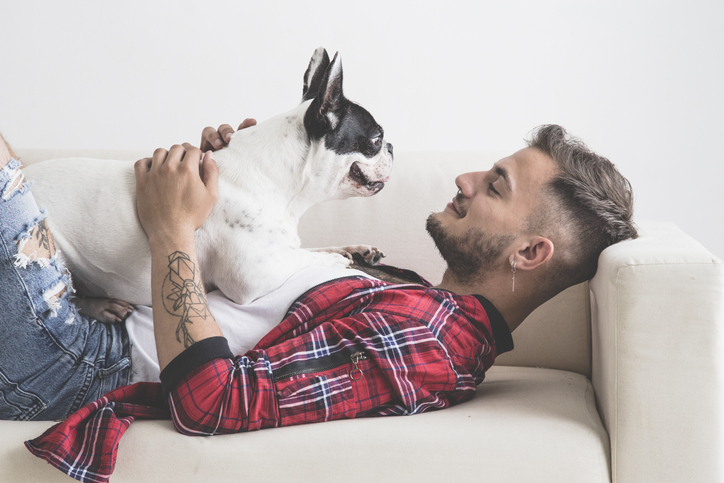
Dogs can discern gender differences through scent, which is another testament to their incredible olfactory abilities. The hormonal differences between males and females create distinct odors that dogs can easily detect. This sensitivity to gender-related scents allows dogs to respond in social situations with more awareness. They might react differently depending on whether they’re interacting with a male or female, adjusting their behavior accordingly.
This isn’t to say that dogs have a preference for one gender over another, but their reactions might vary based on past experiences. Some dogs might be more comfortable with women, while others might gravitate toward men. Understanding these subtle preferences can help you introduce your dog to new people more effectively. It’s another layer of complexity in the fascinating world of canine perception.
12. Your Sleep Patterns
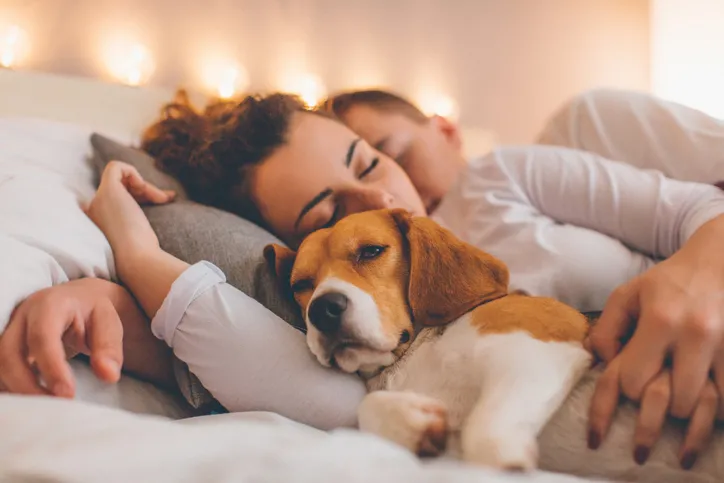
Your dog can even sniff out your sleep patterns. The chemicals released during sleep, particularly hormones like melatonin, create a unique scent profile. Dogs can tell when you’ve had a restless night versus a good night’s sleep. This ability helps them adjust their behavior to match your energy levels.
If you’ve had a poor night’s sleep, your dog might be less demanding or more inclined to relax alongside you. Conversely, after a good night’s rest, they might be ready for a more active day. Your dog’s reactions to your sleep habits can be a helpful reminder to take care of your own rest needs. After all, they’re keen observers and participants in your daily routine.
13. Your Hygiene

Your dog knows when you’re due for a shower. Changes in your natural scent linked to cleanliness, or lack thereof, are quickly detected by a dog’s nose. They can pick up on the presence of soap, shampoo, and other personal care products, as well as the absence of them. This ability isn’t about judgment but rather part of their innate curiosity and desire to understand their environment.
The smells associated with hygiene can also influence how your dog interacts with you. After a shower, they might be particularly interested in your fresh scent, leading to more sniffing and investigation. Conversely, they might keep their distance if you’ve skipped a day. Understanding how your hygiene affects your dog’s behavior can offer insights into their preferences and interactions.
14. Your Unique Scent
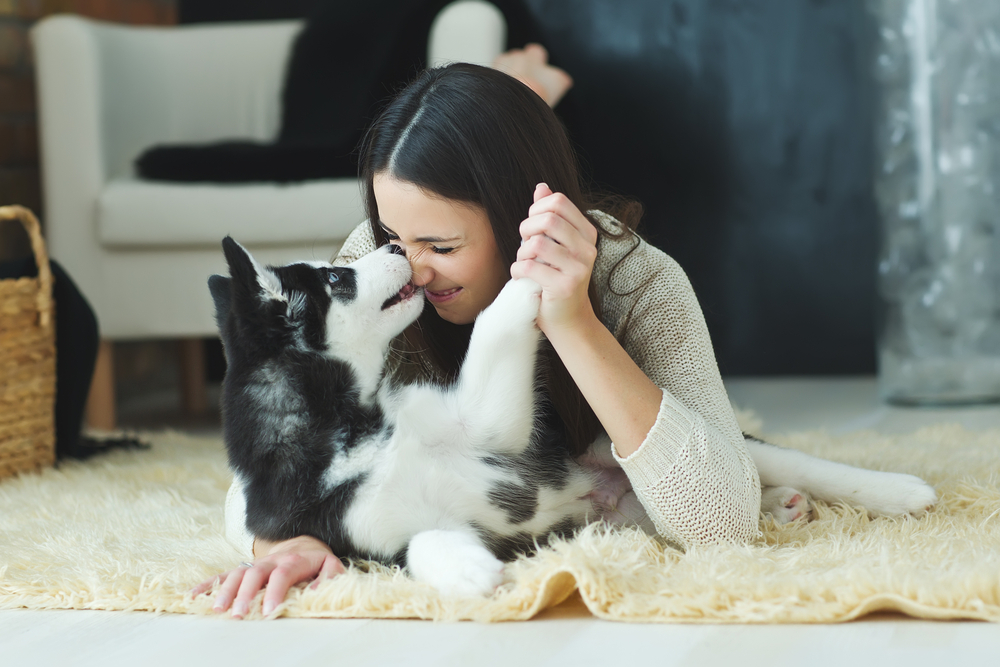
Lastly, your dog knows your unique scent, and it’s their favorite. Every person has a distinct odor composed of skin oils, sweat, and other biological factors. This scent is like a signature to your dog, and it’s one of the reasons they recognize you so easily. It’s also why they can become so attached, as your scent offers comfort and security.
This individual scent is what makes your dog excited to see you after you’ve been away, whether for an hour or a day. It’s the reason they can find you in a crowd and why your presence is so reassuring. Understanding the importance of your unique scent can deepen your appreciation for the bond you share with your pet. It’s a reminder of how much you mean to them in their world of smells.
